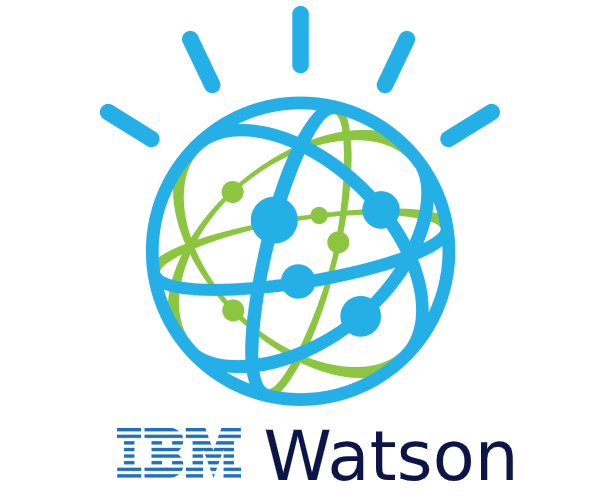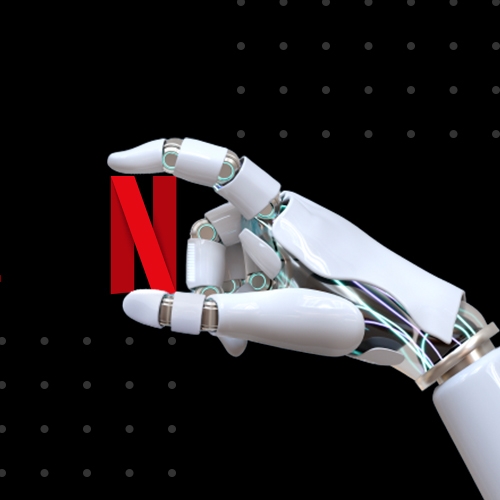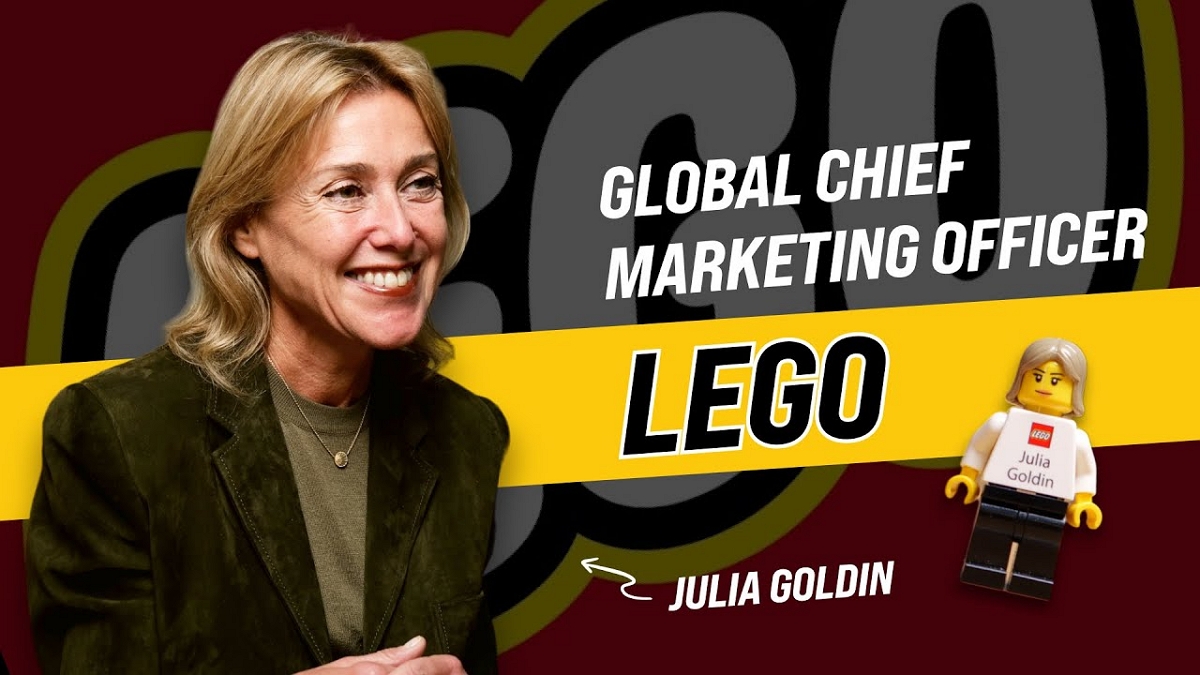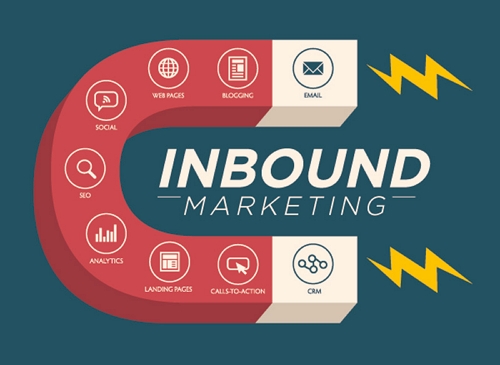Marketing Careers
Feb 17, 2024
By Ari Manor , CEO at ZOOZ

This is one in a series of articles that provide detailed and updated information about Marketing. In this specific article, which focuses on Marketing Overview, you can read about:
- What Marketing Jobs are There
- Marketing Job Titles
- Which Marketing Career is Right for Me
- Marketing Manager
- What Marketing Manager Do
- Will Marketing Managers Be Replaced by AI
- Marketing Strategist
- Marketing Analysist
- Marketing Assistant
- Marketing Consultant
- Marketing Department
- Are Sales and Business Development Included in the Marketing Department?
- Marketing Team
- Marketing Jobs
- Marketing Jobs Near Me
- Are Marketing Jobs in Demand
- Will Marketing Jobs Be Automated
- Marketing Jobs Remote
- Marketing Jobs Salary
- Which Marketing Jobs Pay the Most
- Can Marketing Make You Rich
For additional articles about Marketing, see the Topic Menu.

What Marketing Jobs are There
The field of marketing offers a wide array of job roles that cater to various skills, interests, and areas of expertise.
As businesses continue to navigate the digital landscape, the demand for diverse marketing skills has expanded.
 Case Study:
Case Study:
The Evolution of Marketing Roles at Shopify
- Name: Morgan Brown, VP of Growth Marketing
- Company: Shopify, Canada (2020-Present)
- What Was Done: Morgan Brown spearheaded the diversification of marketing roles at Shopify to include growth marketers, content strategists, and user experience researchers. This expansion aimed to adapt Shopify’s marketing efforts to the rapidly changing e-commerce landscape, focusing on data-driven strategies to enhance user acquisition and retention.
- Results/Impact: Under Brown’s leadership, Shopify saw a significant increase in merchant adoption and retention rates. The introduction of new marketing roles enabled Shopify to better meet its customers' needs, resulting in sustained growth and establishing Shopify as a leading e-commerce platform for businesses of all sizes.
Here's an overview of common marketing jobs:
- Marketing Manager / CMO (Chief Marketing Officer): Oversees marketing strategies and campaigns across channels, coordinates marketing efforts, and analyzes market trends to meet company objectives.
 Case Study:
Case Study:
Adobe’s Digital Transformation Leader- Name: Ann Lewnes, Executive Vice President and CMO
- Organization: Adobe, United States (2006-Present)
- What Was Done: Ann Lewnes led Adobe's marketing through a significant digital transformation, shifting the company's focus towards digital media and digital marketing solutions. Under her leadership, Adobe revamped its marketing strategy to become a cloud-based service provider, emphasizing content creation, data analytics, and customer experience.
- Results/Impact: Lewnes' efforts in transforming Adobe’s marketing strategy played a critical role in Adobe’s transition to a subscription-based model, resulting in a significant increase in Adobe’s market cap and solidifying its position as a leader in digital media and digital marketing industries.
- Digital Marketing Specialist: Focuses on digital channels to increase brand awareness, generate leads, and drive sales. Skills in SEO, PPC, email marketing, and social media are crucial.
- Content Creator/Manager: Develops and manages content strategy for blogs, social media, websites, and other platforms. Involves writing, editing, and ensuring content aligns with SEO practices.
- Social Media Manager: Manages a brand's presence on social media platforms, creating content, engaging with the community, and analyzing social media metrics.
- SEO Specialist: Optimizes website content and code to rank higher in search engine results, improving visibility and driving organic traffic.
- Brand Manager: Develops and maintains the brand's identity, values, and image across all marketing initiatives and channels.
- Product Marketing Manager: Focuses on marketing a specific product or product line, understanding customer needs, and developing strategies to increase market share.
- Market Research Analyst: Collects and analyzes data on consumer demographics, preferences, and buying habits to inform marketing strategies and product development.
- Public Relations (PR) Specialist: Manages the public image and communications of a company, including press releases, public statements, and media relations.
- Email Marketing Specialist: Designs and executes email marketing campaigns, tests and optimizes emails for performance, and manages subscriber lists.
- Advertising Manager: Oversees advertising efforts across various media, including digital, print, and broadcast, and coordinates with ad agencies.
- Growth Hacker: Focuses on rapid growth strategies, often for startups, using creative, low-cost strategies to acquire and retain customers.
- E-commerce Specialist: Manages online sales and presence for brands, optimizing product listings, and improving the online shopping experience.
- Data Analyst: Analyzes marketing data, from customer interactions to campaign performance, to inform decisions and strategies.
- UX/UI Designer: Focuses on the user experience and interface of digital products like websites and apps, ensuring they are user-friendly and align with marketing goals.
Each of these roles plays a vital part in the broader marketing ecosystem, contributing to the creation, communication, delivery, and exchange of offerings that have value for customers, clients, partners, and society at large. As the field continues to evolve, especially with advancements in digital technology, new marketing roles are likely to emerge, offering even more opportunities for those interested in the marketing profession.

Marketing Job Titles
The field of marketing offers a wide array of job titles, reflecting the diverse skills and areas of expertise needed to navigate the ever-evolving marketing landscape. From strategic planning to creative content creation and data analysis, here's a list of common marketing job titles across various levels and specialties:
Entry-Level Marketing Job Titles
- Marketing Coordinator: Assists with campaign development, analyzes performance data, and coordinates marketing activities.
- Content Creator: Produces engaging content for various platforms, including blogs, social media, and websites.
- Social Media Specialist: Manages and grows a brand's presence across social media channels.
- SEO Specialist: Optimizes website content to improve search engine rankings and visibility.
- Digital Marketing Assistant: Supports digital marketing strategies, including email campaigns, PPC advertising, and analytics.
Mid-Level Marketing Job Titles
- Brand Manager: Develops and maintains the brand's image, identity, and marketing strategies.
 Case Study: Enhancing Brand Awareness for Lush Cosmetics
Case Study: Enhancing Brand Awareness for Lush Cosmetics- Name: Natasha Ritz, Brand Communications Manager
- Organization: Lush Cosmetics, Australia (2015-2018)
- What Was Done: Natasha Ritz, during her tenure at Lush Cosmetics, orchestrated campaigns that emphasized the brand's ethical sourcing and handmade cosmetics. She managed PR, events, and social media, aligning marketing strategies with Lush’s core values of sustainability and animal welfare.
- Results/Impact: Ritz’s work significantly enhanced Lush Cosmetics’ brand awareness and customer loyalty in the Australian market. Her campaigns around ethical practices and product transparency effectively communicated Lush’s brand values, contributing to its strong market presence.
- Marketing Analyst: Analyzes market data to identify trends, opportunities, and strategies for growth.
- Email Marketing Manager: Designs and implements email marketing campaigns to engage subscribers and drive conversions.
- Product Marketing Manager: Positions and promotes products, conducting market research to guide product development.
- Social Media Manager: Oversees a brand's social media strategy, content creation, and community engagement.
Senior-Level Marketing Job Titles
- Marketing Director: Leads the marketing department, developing and executing comprehensive marketing strategies.
- Digital Marketing Director: Focuses on digital strategies to increase online presence, including SEO, SEM, and digital advertising.
- Chief Marketing Officer (CMO): Top executive responsible for the overall marketing strategy, aligning it with business goals.
- Content Strategy Director: Guides content strategy across all platforms, ensuring brand consistency and engagement.
- Head of Brand: Leads brand strategy, including positioning, messaging, and customer experience.
 Case Study: The Role of a Chief Storyteller at Microsoft
Case Study: The Role of a Chief Storyteller at Microsoft- Name: Steve Clayton, Chief Storyteller
- Organization: Microsoft, United States (Appointed to role in 2010)
- What Was Done: Steve Clayton, as Microsoft’s Chief Storyteller, revolutionized the way Microsoft communicated internally and externally. He led the creation of Microsoft Stories, a platform to share the company’s innovations, culture, and the people behind its technologies in a compelling narrative format.
- Results/Impact: Clayton’s work significantly improved Microsoft's brand perception, showcasing the human side of the tech giant. The storytelling approach helped demystify technology and made Microsoft’s innovations more relatable to consumers and employees, contributing to an enhanced company culture and stronger brand loyalty.
Specialized Marketing Job Titles
- User Experience (UX) Designer: Designs and optimizes the user experience on websites and apps.
- Influencer Marketing Manager: Manages relationships with influencers to promote products and services.
- Conversion Rate Optimization (CRO) Specialist: Focuses on optimizing the conversion process to increase the effectiveness of marketing efforts.
- Market Research Analyst: Conducts research to gather insights about target markets, competitors, and consumer behavior.
- PPC Specialist: Manages pay-per-click advertising campaigns to generate leads and sales.
 Case Study: Google’s Data Storyteller
Case Study: Google’s Data Storyteller- Name: Simon Rogers, Data Editor at Google News Lab
- Organization: Google, United States (2016-Present)
- What Was Done: Simon Rogers at Google News Lab focuses on transforming data into compelling narratives. His role involves analyzing complex datasets to uncover interesting stories, particularly around major news events, and presenting these findings in an accessible way to the public and journalists.
- Results/Impact: Rogers’ work has highlighted the importance of data journalism, leading to widespread recognition of Google News Lab’s initiatives in supporting news organizations around the world. His role exemplifies how specialized job titles within marketing and communications can drive innovation and public engagement.
This list is not exhaustive but provides a snapshot of the variety of roles within the marketing field. Each title comes with its own set of responsibilities, requiring specific skills and expertise to drive brand awareness, engage customers, and contribute to business growth.

Which Marketing Career is Right for Me
Choosing the right marketing career depends on your interests, skills, and career aspirations. Marketing is a diverse field with opportunities ranging from creative roles to analytical positions.
Here's a guide to help you determine which marketing career might be right for you:
Assess Your Interests and Skills
- Creative vs. Analytical: Do you enjoy coming up with creative ideas and storytelling, or do you prefer working with data, numbers, and strategic planning?
- Technical vs. Non-Technical: Are you interested in learning and using new technologies, or do you lean towards traditional marketing methods?
- Individual Contribution vs. Team Collaboration: Do you work best independently, or do you thrive in a team setting where collaboration is key?
Explore Different Marketing Careers
Based on the self-assessment above, consider the following areas within marketing:
- Content Creation and Strategy (Creative, Team Collaboration)
- Ideal for those who love writing, video production, or designing.
- Roles include Content Creator, Content Strategist, and Content Marketing Manager.
- Digital Marketing (Analytical, Technical)
- Suitable for individuals interested in SEO, PPC, email marketing, and social media.
- Consider roles like Digital Marketing Specialist, SEO Analyst, and Email Marketing Manager.
- Brand Management (Creative, Analytical, Team Collaboration)
- For those interested in developing and maintaining a brand's image, identity, and strategy.
- Positions include Brand Manager and Head of Branding.
- Market Research (Analytical, Individual Contribution)
- Perfect for individuals who enjoy gathering and analyzing market data to inform marketing strategies.
- Roles include Market Research Analyst and Consumer Insights Manager.
- Product Marketing (Analytical, Creative, Team Collaboration)
- Ideal for those who want to work closely with product development teams to bring new products to market.
- Consider roles like Product Marketing Manager.
- Social Media Marketing (Creative, Technical, Team Collaboration)
- Suitable for individuals passionate about engaging with audiences on social media platforms.
- Positions include Social Media Specialist and Social Media Manager.
- Marketing Analytics (Analytical, Technical, Individual Contribution)
- For those who enjoy diving into data to uncover insights that drive marketing decisions.
- Roles include Marketing Analyst and Data Scientist in Marketing.
 Case Study: Navigating Marketing Careers at HubSpot
Case Study: Navigating Marketing Careers at HubSpot
- Name: Kieran Flanagan, SVP of Marketing
- Company: HubSpot, United States (Joined in 2012)
- What Was Done: Kieran Flanagan started at HubSpot leading the International Marketing team and has held various roles, including VP of Marketing and Growth, before becoming SVP of Marketing. His work has been instrumental in HubSpot’s growth strategy, focusing on inbound marketing and global market expansion.
- Results/Impact: : Under Flanagan’s leadership, HubSpot has seen significant global growth, with a notable increase in international customers. His career progression within HubSpot exemplifies the potential for growth and impact in marketing roles, from strategic planning to execution.
Consider Your Long-Term Career Goals
Think about where you see yourself in the future. Are you aiming for a leadership position like Marketing Director or Chief Marketing Officer (CMO), or do you prefer specializing in a particular area?
- Gain Experience
- Internships, part-time jobs, and volunteer opportunities can provide practical experience and help refine your interests.
- Internships, part-time jobs, and volunteer opportunities can provide practical experience and help refine your interests.
- Continue Learning
- The marketing field is constantly evolving. Stay current with trends, technologies, and best practices through continuous learning and professional development.
- The marketing field is constantly evolving. Stay current with trends, technologies, and best practices through continuous learning and professional development.
 Case Study: From Content Creation to Marketing Director at Canva
Case Study: From Content Creation to Marketing Director at Canva
- Name: Liz McKenzie, Head of PR and Communications
- Company: Canva, Australia (Joined in 2015)
- What Was Done: Liz McKenzie started her career at Canva focusing on content creation and quickly rose through the ranks to become the Head of PR and Communications. She played a pivotal role in shaping the company's brand narrative and driving global awareness.
- Results/Impact: McKenzie’s leadership in PR and communications significantly contributed to Canva’s explosive growth. Her journey showcases the diverse career paths within marketing, emphasizing that starting in a specialized area like content creation can lead to broader strategic roles.
Choosing the right marketing career path is a personal decision influenced by your unique combination of interests, skills, and professional aspirations. Consider what excites you about marketing and where you can see yourself making the biggest impact.

Marketing Manager
A Marketing Manager plays a pivotal role in shaping and executing the marketing strategies of a company. This position involves overseeing marketing campaigns, analyzing market trends, and coordinating marketing efforts across various channels to ensure the company's message reaches its target audience effectively.
 Case Study: Driving Digital Engagement at Netflix
Case Study: Driving Digital Engagement at Netflix
- Name: Marion Kim, Marketing Manager
- Company: Netflix, United States (Joined in 2018)
- What Was Done: As a Marketing Manager at Netflix, Marion Kim led digital marketing campaigns that leveraged data analytics to increase subscriber engagement. She focused on utilizing social media platforms and Netflix’s own user data to tailor marketing efforts to viewer preferences and trends.
- Results/Impact: Kim’s campaigns contributed to notable increases in subscriber engagement and retention rates, demonstrating the power of targeted digital marketing strategies in the streaming service industry.
Following is a deeper look into the role, responsibilities, and skills required to be a successful Marketing Manager.
Key Responsibilities
- Developing Marketing Strategies: Creating comprehensive marketing plans that align with the company's objectives, including digital, social media, content, and traditional marketing strategies.
- Market Research: Conducting research to identify market trends, customer needs, and competitive landscape to inform marketing strategies.
- Campaign Management: Planning, implementing, and overseeing marketing campaigns across multiple channels, ensuring consistent brand messaging.
- Budget Management: Allocating and managing the marketing budget to maximize ROI on marketing initiatives.
- Team Leadership: Leading and managing the marketing team, setting goals, and ensuring the team has the resources needed to achieve them.
- Analytics and Reporting: Analyzing campaign performance and preparing reports for stakeholders, using data to optimize future marketing efforts.
- Collaboration: Working closely with other departments, such as sales, product development, and customer service, to ensure a cohesive strategy and message across all customer touchpoints.
- Vendor Management: Selecting and managing relationships with external agencies and vendors that contribute to marketing efforts.
Skills and Qualifications
- Strategic Thinking: Ability to develop strategic marketing plans that effectively communicate the brand's message and achieve business goals.
- Analytical Skills: Proficiency in analyzing market data, campaign performance, and customer insights to inform decisions.
- Creativity: Creativity in designing marketing campaigns that engage the target audience and stand out in the market.
- Communication: Excellent written and verbal communication skills for crafting clear marketing messages and leading the marketing team.
- Leadership: Strong leadership qualities to inspire and manage the marketing team effectively.
- Adaptability: Ability to adapt strategies in response to market changes, new technologies, and emerging trends.
- Technical Proficiency: Familiarity with marketing tools and platforms, such as CRM software, analytics tools, and digital marketing platforms.
Education and Experience
- A bachelor’s degree in marketing, business, or a related field is typically required.
- Several years of experience in marketing, with a proven track record of successful marketing campaigns and team management.
Career Path
- Marketing Managers often progress to senior roles such as Senior Marketing Manager, Director of Marketing, or even Chief Marketing Officer (CMO), depending on their experience, performance, and the size and structure of the company.
Becoming a Marketing Manager offers the opportunity to make a significant impact on a company's brand presence and bottom line. It’s a role suited for individuals who are not only creative and analytical but also possess the leadership skills to drive marketing initiatives forward in a dynamic business environment.

What Marketing Manager Do
A Marketing Manager plays a crucial role in any organization, acting as the bridge between the company’s products or services and its target audience. Their primary responsibility is to promote the company's brand, engage customers, and drive sales through various marketing strategies and campaigns.
Here's an overview of what a Marketing Manager does:
- Develop Marketing Strategies: They devise comprehensive marketing plans that align with the company’s business objectives. This involves market research to identify target demographics, setting marketing goals, and determining the best channels and tactics to reach those goals.
 Case Study: Elevating Salesforce with Integrated Marketing
Case Study: Elevating Salesforce with Integrated Marketing- Name: Sarah Franklin, EVP & CMO
- Organization: Salesforce, United States (Promoted to CMO in 2021)
- What Was Done: Sarah Franklin has led Salesforce's marketing strategies to new heights by integrating product marketing with corporate branding, customer experience, and digital innovation strategies. Her approach focuses on storytelling and building communities around Salesforce products.
- Results/Impact: Under Franklin's leadership, Salesforce has not only solidified its position as a leader in CRM but also expanded its market share and customer base globally. Her initiatives have significantly contributed to enhancing Salesforce's brand equity and customer engagement.
- Conduct Market Research: Marketing Managers conduct research to stay abreast of market trends, understand customer needs and preferences, and monitor the competitive landscape. This information guides the development of effective marketing strategies.
- Oversee Marketing Campaigns: From conception to execution, they manage all aspects of marketing campaigns across different channels—digital, social media, print, etc. This includes content creation, design, scheduling, and budgeting.
 Case Study: Rebranding and Growth at Slack
Case Study: Rebranding and Growth at Slack- Name: Julie Liegl, CMO
- Organization: Slack, United States (Joined in 2019)
- What Was Done: Julie Liegl spearheaded Slack's rebranding efforts and was crucial in developing marketing strategies that communicated the platform's value proposition to a broad audience. Her work included overseeing brand campaigns, performance marketing, and customer acquisition strategies.
- Results/Impact: Liegl’s strategic marketing leadership helped Slack navigate a highly competitive market and achieve substantial growth in user adoption, leading up to its acquisition by Salesforce. Her efforts in rebranding and targeted marketing campaigns have played a key role in Slack's success.
- Analyze and Report on Performance: Using analytics tools, Marketing Managers track the performance of marketing initiatives against predefined KPIs. They analyze data to identify successes, areas for improvement, and insights for future campaigns.
- Collaborate with Other Teams: They work closely with sales, product development, customer service, and other departments to ensure a cohesive approach to market the company’s offerings and to gather insights that inform marketing strategies.
- Manage Budgets: Marketing Managers are responsible for allocating and managing the marketing budget efficiently, ensuring that spending maximizes return on investment.
- Lead and Develop the Marketing Team: They lead the marketing team, providing direction, setting objectives, and offering support and training to ensure the team is effective and motivated.
- Stay Current with Marketing Trends: They keep up with the latest marketing techniques, technologies, and platforms to ensure the company's marketing strategy remains relevant and effective.
- Vendor and Agency Management: Marketing Managers often select and manage relationships with external agencies and vendors that provide marketing services, ensuring these partnerships deliver value.
- Customer Engagement: They develop strategies for engaging with customers across various platforms, building brand loyalty and fostering a positive brand image.
 Case Study: Enhancing Customer Experience at Airbnb
Case Study: Enhancing Customer Experience at Airbnb- Name: Monica Hyacinth, Global Marketing Manager
- Organization: Airbnb, United States (2014-Present)
- What Was Done: Monica played a critical role in developing and executing marketing strategies that focused on enhancing the customer experience. She led initiatives to better understand customer needs through data analysis and used this insight to create targeted marketing campaigns.
- Results/Impact: Her efforts led to an improved customer experience, contributing to increased bookings and customer loyalty. Monica's work exemplifies the multifaceted role of marketing managers in using customer insights to drive strategic decisions.
In essence, Marketing Managers are the architects of a company’s marketing efforts. They blend creative thinking with analytical skills to craft strategies that effectively communicate the value of the company’s products or services to the right audience, at the right time, through the right channels. Their work directly impacts the company’s brand perception, customer engagement, and ultimately, its bottom line.

Will Marketing Managers Be Replaced by AI
The question of whether AI will replace marketing managers is both complex and nuanced. While AI and automation technologies are advancing rapidly and can perform a growing number of tasks traditionally done by humans, there are several reasons why marketing managers are unlikely to be fully replaced:
Complementing Skills, Not Replacing
- Strategic Thinking and Creativity: AI excels at analyzing data and identifying patterns, but it lacks the human capability for creative thinking and strategic planning. Marketing managers bring a level of creativity and strategic insight that is critical for developing effective marketing campaigns and adjusting strategies based on changing market conditions.
 Case Study: IBM Watson’s Complement to Marketing Teams
Case Study: IBM Watson’s Complement to Marketing Teams- Company: IBM, Global
- What Was Done: IBM has integrated Watson, its AI platform, into various marketing functions to assist marketing managers rather than replace them. Watson provides insights from data analysis, customer behavior prediction, and content personalization, supporting strategic decision-making.
- Results/Impact: The implementation of AI like Watson in marketing processes has shown that AI can enhance the effectiveness of marketing strategies without replacing human roles. It underscores the idea that AI serves as a powerful tool for marketing managers, enabling more informed decisions and personalized marketing approaches.
The Human Touch
- Understanding Human Emotions: A key part of marketing is connecting with people on an emotional level. While AI can analyze consumer behavior and preferences, it cannot fully understand or replicate human emotions. Marketing managers play a crucial role in crafting messages that resonate emotionally with the target audience.
Ethical Considerations and Brand Image
- Ethical Judgment: Marketing often involves making decisions that have ethical implications, such as how to represent a product truthfully or manage consumer data responsibly. AI lacks the ethical judgment and understanding of societal norms that are crucial for maintaining a brand's integrity and reputation.
Adaptability and Crisis Management
- Crisis Management: Marketing managers are adept at navigating crises and managing a brand's response to unforeseen events. AI systems, while capable of processing data quickly, do not possess the adaptability and nuanced understanding needed to handle complex, evolving situations.
The Role of AI in Marketing
- AI as a Tool: Rather than replacing marketing managers, AI is more likely to serve as a powerful tool that enhances their capabilities. AI can automate repetitive tasks, provide insights through data analysis, and even predict consumer trends, allowing marketing managers to focus on strategic planning, creative development, and more complex decision-making.
 Case Study: Enhancing Personalization at Netflix with AI
Case Study: Enhancing Personalization at Netflix with AI- Company: Netflix, Global
- What Was Done: Netflix utilizes AI to analyze viewing patterns and preferences, assisting marketing managers in creating highly personalized viewer experiences. This AI-driven personalization extends to marketing communications, content recommendations, and even content creation.
- Results/Impact: AI's role at Netflix demonstrates how marketing managers can leverage technology to deepen customer engagement and satisfaction. It highlights that while AI can automate and optimize certain tasks, the strategic and creative aspects of marketing management remain firmly in the hands of humans.
Skill Evolution and Job Transformation
- Evolving Roles: The integration of AI into marketing will likely transform the role of marketing managers rather than replace it. Marketing professionals will need to adapt by gaining skills in data analysis, AI technology, and digital marketing strategies to work alongside AI tools effectively.
 Case Study:
Case Study:
Adobe’s AI-Enhanced Marketing Creativity- Name: Ann Lewnes, Executive Vice President and CMO
- Organization: Adobe, United States (2006-Present)
- What Was Done: Ann Lewnes has overseen the integration of AI into Adobe’s marketing efforts, using Adobe Sensei to enhance creative processes and campaign personalization. This strategic use of AI aimed to boost creativity and efficiency rather than replace human marketers.
- Results/Impact: The integration of AI technologies under Lewnes’ guidance has bolstered Adobe’s marketing campaigns, enabling more personalized customer experiences and demonstrating that AI serves as a complement to human creativity and strategic thinking in marketing roles.
In conclusion, while AI will undoubtedly continue to change how marketing functions are performed, marketing managers' roles are rooted in uniquely human skills and qualities that AI cannot replicate. Instead of replacement, the future will likely see AI augmenting the capabilities of marketing managers, leading to more efficient and impactful marketing strategies.

Marketing Strategist
A Marketing Strategist plays a crucial role in shaping a company's marketing efforts by developing strategies that effectively communicate the brand's message, reach the target audience, and achieve business objectives. This position requires a blend of analytical thinking, creative insight, and a deep understanding of the market and consumer behavior.
Here’s an in-depth look at the role, responsibilities, and skills required for a successful Marketing Strategist:
Key Responsibilities
- Market Research: Conduct thorough research to understand market trends, consumer behavior, competitive landscape, and potential opportunities or threats.
- Strategy Development: Create comprehensive marketing strategies that align with the company’s goals, including identifying target audiences, setting objectives, and defining key messaging.
- Campaign Planning: Plan and oversee the execution of marketing campaigns across various channels (digital, social media, traditional media, etc.), ensuring they are cohesive and aligned with the overall strategy.
- Collaboration with Creative Teams: Work closely with creative teams (content creators, graphic designers, etc.) to ensure that marketing materials align with the strategic vision and effectively communicate the brand's message.
 Case Study:
Case Study:
Red Bull’s Content Marketing Strategy- Name: Christoph Reifenrath, Global Head of Digital Marketing
- Organization: Red Bull, Austria (2013-Present)
- What Was Done: Christoph spearheaded the development of Red Bull’s content marketing strategy, focusing on creating high-energy, compelling content that resonated with the brand’s adventurous image. This included everything from extreme sports events to music festivals, all aimed at bolstering Red Bull’s presence as more than just an energy drink company.
- Results/Impact: Red Bull’s content-driven approach significantly enhanced its brand recognition and engagement worldwide, establishing it as a leader in content marketing. The strategy drove increased product sales and expanded its market share, showcasing the power of a strong, cohesive content marketing strategy.
- Performance Analysis: Monitor and analyze the performance of marketing campaigns, using data to assess their effectiveness against goals and KPIs.
- Optimization: Continuously refine and adjust strategies based on performance data, market changes, and consumer feedback to maximize effectiveness and ROI.
- Stakeholder Communication: Clearly communicate marketing strategies, plans, and outcomes to stakeholders, including presenting findings and recommendations.
Skills and Qualifications
- Analytical Skills: Ability to analyze market data, consumer insights, and campaign performance to inform strategic decisions.
- Strategic Thinking: Capability to develop long-term strategies that achieve business goals and adapt to changing market conditions.
- Creativity: Creativity in problem-solving and developing unique strategies to capture the target audience's attention.
- Communication Skills: Excellent verbal and written communication skills for articulating strategies, collaborating with teams, and presenting to stakeholders.
- Digital Marketing Proficiency: Understanding of digital marketing channels and tactics, including SEO, SEM, content marketing, and social media.
- Project Management: Ability to manage multiple projects simultaneously, keeping them on track and within budget.
Education and Experience
- A bachelor’s degree in marketing, business, or a related field is typically required, with a master’s degree preferred for some positions.
- Several years of experience in marketing, with a proven track record of developing and implementing successful marketing strategies.
Career Path
- Marketing Strategists can advance to senior roles such as Senior Marketing Strategist, Marketing Director, or even Chief Marketing Officer (CMO), depending on their experience and the success of their strategies.
 Case Study: Sephora’s Digital Transformation
Case Study: Sephora’s Digital Transformation
- nAME: Mary Beth Laughton, Executive Vice President of Omni Retail
- Company: Sephora, United States (2014-2019)
- What Was Done: Mary Beth Laughton led Sephora’s digital transformation, enhancing the beauty retailer's online presence and integrating digital tools into the in-store experience. This included the introduction of the Sephora Virtual Artist app, which used AR technology to allow customers to try on products virtually.
- Results/Impact: Laughton’s strategy greatly increased Sephora’s online sales and in-store engagement, positioning Sephora as a digital leader in the retail beauty industry. Her work underscored the importance of integrating digital and physical retail experiences to meet evolving consumer expectations.
The role of a Marketing Strategist is both challenging and rewarding, offering the opportunity to directly impact a company's market presence and success. It suits individuals who are not only analytical and strategic but also creative and forward-thinking, capable of navigating the complex landscape of modern marketing.

Marketing Analysist
A Marketing Analyst plays a critical role in guiding a company's marketing strategies by analyzing market data, consumer behaviors, and campaign performance. This position requires strong analytical skills, a keen eye for detail, and an ability to translate complex data sets into actionable insights.
Here's a detailed overview of the role, responsibilities, and the skills needed to succeed as a Marketing Analyst:
Key Responsibilities
- Data Collection and Analysis: Gather data from various sources, including market research, customer feedback, digital analytics platforms, and sales reports, to understand market trends, customer preferences, and competitive dynamics.
- Performance Measurement: Track and analyze the performance of marketing campaigns across different channels (e.g., social media, email, PPC) using key performance indicators (KPIs) to determine effectiveness and ROI.
- Consumer Insights: Analyze consumer behavior and segmentation to identify target audiences and their buying habits, preferences, and needs.
 Case Study: Netflix’s Viewer Insight Optimization
Case Study: Netflix’s Viewer Insight Optimization- Name: Dave Hastings, Director of Product Analytics, Data Science, and Engineering
- Organization: Netflix, United States (2008-Present)
- What Was Done: Dave led the team responsible for analyzing viewer data to inform Netflix’s content recommendations and original content decisions. By deeply understanding viewer preferences and behaviors, his team’s work ensures that Netflix’s content curation is as engaging and personalized as possible.
- Results/Impact: The analytics-driven approach to content has been crucial in Netflix’s ability to maintain high engagement rates, minimize churn, and grow its subscriber base globally. Dave’s contribution showcases the critical role marketing analysts play in leveraging data to drive strategic decisions.
- Market Trends: Stay abreast of industry trends and developments to anticipate market shifts and advise on potential marketing opportunities or threats.
 Case Study: Zara’s Fast Fashion Forecasting
Case Study: Zara’s Fast Fashion Forecasting- Name: Alejandro Lopez, Market Analyst
- Organization: Zara (Inditex), Spain (2015-Present)
- What Was Done: Alejandro utilizes advanced analytics and market research to predict fast-changing fashion trends. His insights help Zara to adjust its production and inventory strategies rapidly, ensuring that the retailer can meet its customers' demands for the latest fashion trends efficiently.
- Results/Impact: This analytics approach has kept Zara at the forefront of the fast fashion industry, allowing for quick response to market changes and maintaining a competitive edge in product offerings. Alejandro’s work exemplifies how marketing analysts contribute to operational agility and market responsiveness.
- Reporting: Prepare detailed reports and presentations that highlight findings, provide insights, and recommend data-driven strategies to improve marketing effectiveness.
- Collaboration: Work closely with marketing, sales, and product development teams to share insights and inform strategy and decision-making.
- Forecasting: Use statistical models and predictive analytics to forecast market trends, consumer behavior, and campaign outcomes.
Skills and Qualifications
- Analytical Skills: Strong ability to analyze and interpret data, identifying patterns and drawing meaningful conclusions.
- Technical Proficiency: Proficiency in data analysis tools and software (e.g., Google Analytics, Excel, SQL, Tableau).
- Communication Skills: Excellent verbal and written communication skills for conveying complex data insights in an understandable manner to non-technical stakeholders.
- Strategic Thinking: Capability to translate data insights into strategic recommendations for marketing strategy and business growth.
- Attention to Detail: Meticulous attention to detail to ensure data accuracy and reliability.
- Problem-Solving: Ability to identify problems and use data to propose viable solutions.
Education and Experience
- A bachelor’s degree in marketing, statistics, business analytics, or a related field is typically required. A master’s degree can be an advantage.
- Experience in data analysis, market research, or a related field, demonstrating the ability to manage and interpret data.
Career Path
- Marketing Analysts can progress to senior analyst roles, specialize in areas such as digital analytics or consumer insights, or transition into strategic roles like Marketing Manager or Director of Marketing Analytics.
Becoming a Marketing Analyst offers the opportunity to significantly impact a company's strategic direction through data-driven insights. It suits individuals with a passion for data, an analytical mindset, and a desire to drive business success through informed decision-making.

Marketing Assistant
A Marketing Assistant supports the marketing department's initiatives, working closely with Marketing Managers and teams to execute campaigns, conduct market research, and manage daily administrative tasks. This entry-level position is crucial for the smooth operation of the marketing department, offering a blend of creative, administrative, and analytical responsibilities.
Here’s a detailed look into the role, responsibilities, and skills required for a successful Marketing Assistant:
Key Responsibilities
- Administrative Support: Assist in daily administrative tasks to ensure the marketing department operates smoothly, including scheduling meetings, managing correspondence, and organizing files.
- Campaign Support: Help in the creation and execution of marketing campaigns, including preparing presentations, coordinating with vendors, and tracking campaign progress.
- Content Creation: Contribute to creating marketing materials, such as blog posts, social media content, newsletters, and promotional materials.
- Market Research: Conduct basic market research to gather information on consumer trends, competitor analysis, and market opportunities.
- Data Analysis: Assist in analyzing marketing data (campaign results, conversion rates, traffic, etc.) to help shape future marketing strategies.
- Event Coordination: Support the planning and execution of marketing events, trade shows, and conferences, including logistics, registrations, and promotional activities.
- Social Media Management: Help manage the company’s social media profiles, posting content, responding to comments, and analyzing engagement data.
 Case Study: Canva’s User-Focused Feature Enhancements
Case Study: Canva’s User-Focused Feature Enhancements- Name: Cameron Adams, Co-founder and Chief Product Officer
- Organization: Canva, Australia (2012-Present)
- What Was Done: In the early days of Canva, Cameron Adams played a crucial role similar to that of a marketing assistant by closely listening to user feedback on social media and through customer support channels. This feedback directly influenced the prioritization of new features and improvements in Canva’s design platform.
- Results/Impact: This user-focused approach to product development and marketing helped Canva grow rapidly, now boasting millions of users worldwide. The strategy underscores the importance of aligning marketing efforts with user needs and preferences, leading to enhanced product offerings and customer satisfaction.
- Vendor and Agency Liaison: Assist in communicating with external agencies and vendors to ensure marketing materials and campaigns are executed on time and within budget.
Skills and Qualifications
- Organizational Skills: Strong ability to manage multiple tasks and projects simultaneously in a fast-paced environment.
- Communication Skills: Excellent verbal and written communication skills for drafting content, communicating with team members, and liaising with external parties.
- Creativity: A creative mindset with the ability to contribute ideas for campaigns, content, and promotional materials.
- Analytical Abilities: Basic analytical skills to interpret marketing data and provide insights into campaign effectiveness.
- Technological Proficiency: Familiarity with marketing tools and software, such as CRM platforms, content management systems, and social media scheduling tools.
- Teamwork: Ability to work effectively in a team, supporting colleagues and contributing to a collaborative environment.
- Adaptability: Openness to learning and adapting to new tasks, tools, and marketing trends.
Education and Experience
- A bachelor’s degree in marketing, business, communications, or a related field is often required.
- Internship experience in marketing or related fields can be advantageous, providing practical experience and exposure to marketing operations.
Career Path
- A bachelor’s degree in marketing, business, communications, or a related field is often required.
- Internship experience in marketing or related fields can be advantageous, providing practical experience and exposure to marketing operations.
 Case Study: Glossier’s Community Engagement Boost
Case Study: Glossier’s Community Engagement Boost
- Name: Emily Weiss, Founder and CEO
- Organization: Glossier, United States (2014-Present)
- What Was Done: : Initially, Emily Weiss, through her role which encompassed everything from CEO to essentially being the first 'marketing assistant,' used direct engagement with Glossier's online community to inform product development and marketing strategies. This hands-on approach helped to build a loyal customer base from the very beginning.
- Results/Impact: Glossier's community-first approach led to exponential growth, with the brand achieving cult status and expanding its product line significantly. The strategy of leveraging direct customer feedback and engagement as foundational marketing tools proved incredibly successful, showcasing the power of community in brand building.
The role of a Marketing Assistant is an excellent entry point into the marketing profession, offering a broad exposure to various aspects of marketing and the opportunity to develop a wide range of skills that are essential for a successful career in marketing.

Marketing Consultant
A Marketing Consultant is a professional who provides expert advice and guidance to businesses on their marketing strategies, helping them to improve brand awareness, reach target audiences more effectively, and ultimately drive sales and growth. Marketing Consultants work with companies to assess their current marketing efforts, identify areas for improvement, and develop and implement strategies that align with the business's goals and objectives.
Here’s an in-depth look at the role, responsibilities, and skills required to be a successful Marketing Consultant:
Key Responsibilities
- Market Analysis: Conduct comprehensive analyses of the market, competitors, and target customers to understand the business's competitive landscape and market positioning.
- Strategy Development: Develop tailored marketing strategies based on analysis and the company’s goals, including digital marketing, content strategy, branding, and customer engagement plans.
 Case Study: Reviving Old Spice’s Brand Image
Case Study: Reviving Old Spice’s Brand Image- Name: James Moorhead, Former Brand Manager
- Organization: Old Spice, United States (2006-2012)
- What Was Done: James Moorhead, serving as the brand manager and later as a marketing consultant, was instrumental in the development and execution of Old Spice’s iconic “The Man Your Man Could Smell Like” campaign. This campaign revitalized the brand’s image, targeting a younger demographic with humor and viral video content.
- Results/Impact: The campaign led to a dramatic increase in Old Spice’s sales and significantly improved brand perception among younger consumers. Moorhead’s work showcases how marketing consultants can drive brand rejuvenation through creative strategy and execution.
- Implementation Guidance: Assist clients in implementing marketing strategies, providing advice on tactics, channels, and best practices to ensure successful execution.
- Performance Measurement: Establish metrics and KPIs to measure the effectiveness of marketing initiatives and use data to recommend adjustments and optimizations.
- Training and Coaching: Provide training and coaching to the business's marketing team, sharing knowledge and expertise to enhance their marketing capabilities.
- Trend Monitoring: Keep abreast of the latest marketing trends, technologies, and methodologies to provide up-to-date advice and ensure strategies remain relevant.
- Vendor and Tool Selection: Advise on the selection of marketing tools, platforms, and vendors, helping businesses choose solutions that best fit their needs.
Skills and Qualifications
- Strategic Thinking: Ability to develop comprehensive marketing strategies that effectively address business challenges and opportunities.
- Analytical Skills: Strong analytical skills to interpret market data, consumer behavior, and campaign performance to inform strategic decisions.
- Communication and Interpersonal Skills: Excellent communication skills to articulate ideas clearly, negotiate with stakeholders, and build strong client relationships.
- Adaptability: Capacity to work with businesses of varying sizes and industries, adapting strategies to meet diverse needs.
- Digital Marketing Expertise: In-depth knowledge of digital marketing channels and techniques, including SEO, PPC, social media, email marketing, and content marketing.
- Project Management: Strong project management skills to oversee the development and implementation of marketing strategies.
- Results-Driven: Focus on achieving measurable outcomes, demonstrating the ability to drive business growth through effective marketing.
Education and Experience
- A bachelor’s degree in marketing, business, or a related field, with many consultants also holding an MBA or other advanced degrees.
- Extensive experience in marketing, with a proven track record of successful strategy development and execution, often across various industries and market segments.
 Case Study: Airbnb’s Global Expansion Consulting
Case Study: Airbnb’s Global Expansion Consulting- Name: Jonathan Mildenhall, Former CMO
- Organization: Airbnb, United States (2014-2017)
- What Was Done: After his tenure at Airbnb, Jonathan Mildenhall provided consulting services to various companies, leveraging his expertise in brand strategy and marketing he honed at Airbnb. His work involved advising on brand positioning, international marketing strategies, and content creation to drive global awareness and adoption.
- Results/Impact: While the specific outcomes of his consulting roles are confidential, Mildenhall’s influence at Airbnb contributed to its transformation into a global brand powerhouse. His consulting work continues to impact companies looking to achieve similar growth and market penetration, demonstrating the value of experienced marketing consultants in scaling businesses.
Career Path
- Marketing Consultants may work as independent contractors, part of a consulting firm, or as freelancers. With experience, they may specialize in specific areas of marketing (e.g., digital marketing, branding, B2B marketing) or industries (e.g., technology, healthcare, retail). Successful Marketing Consultants may advance to senior consultancy roles, establish their consulting firm, or transition into executive roles within corporate marketing departments.
Becoming a Marketing Consultant offers the opportunity to have a significant impact on businesses' success, providing the chance to work on diverse projects and continually challenge one's skills and knowledge in the ever-evolving field of marketing.

Marketing Department
The Marketing Department plays a crucial role in any organization, responsible for developing strategies and executing campaigns to promote products or services, engage customers, and drive business growth. This department works across various media and platforms to communicate the brand's message, establish market presence, and achieve the company's marketing and sales objectives.
Here's an overview of the typical structure, functions, and roles within a Marketing Department:
Core Functions
- Market Research: Conducts research to gather insights on consumer behavior, market trends, competitor analysis, and opportunities for growth.
- Brand Management: Develops and maintains the brand's identity, ensuring consistency and alignment with the company's values across all marketing efforts.
 Case Study: Unilever’s Marketing Department Sustainability Focus
Case Study: Unilever’s Marketing Department Sustainability Focus- Name: Keith Weed, Former Chief Marketing and Communications Officer
- Organization: Unilever, United Kingdom (2010-2019)
- What Was Done: Keith Weed led Unilever’s marketing department with a strong emphasis on sustainability. He integrated sustainable practices into marketing strategies, aligning product promotion with Unilever’s corporate mission to make sustainable living commonplace.
- Results/Impact: Under his guidance, Unilever saw growth in its “Sustainable Living” brands at a rate almost 50% faster than the rest of the business. Weed’s focus on sustainability within the marketing department showcased how environmental values can drive business success.
- Product Marketing: Collaborates with product development teams to market products effectively, including positioning, messaging, and launch strategies.
 Case Study: LEGO’s Rebuilding Through Marketing Innovation
Case Study: LEGO’s Rebuilding Through Marketing Innovation- Name: Julia Goldin, Chief Marketing Officer
- Organization: LEGO, Denmark (2015-Present)
- What Was Done: Julia Goldin revitalized LEGO’s marketing department by focusing on digital innovation and storytelling, connecting new generations with LEGO through interactive experiences and compelling narratives.
- Results/Impact: These initiatives helped propel LEGO to become the largest toy company in the world by revenue. Goldin’s leadership in the marketing department played a pivotal role in LEGO’s turnaround, showcasing how innovative marketing strategies can rejuvenate a brand.
- Digital Marketing: Manages online marketing efforts, including website management, social media marketing, SEO, and online advertising.
 Case Study: Coca-Cola’s Dynamic Marketing Department Structure
Case Study: Coca-Cola’s Dynamic Marketing Department Structure- Name: Marcos de Quinto, Former Chief Marketing Officer
- Organization: Coca-Cola, United States (2015-2017)
- What Was Done: Under Marcos de Quinto's leadership, Coca-Cola revamped its marketing department to better integrate traditional marketing with digital initiatives. This restructuring aimed to foster innovation and agility within the team, adapting to rapidly changing consumer trends.
- Results/Impact: The reorganization contributed to the successful launch of several global campaigns and digital marketing initiatives, reinforcing Coca-Cola’s brand presence worldwide. This approach demonstrated the effectiveness of a dynamic marketing department in a global corporation.
- Content Creation: Produces engaging content for various channels, such as blogs, social media posts, and video content, to attract and retain customers.
- Customer Engagement: Designs and implements strategies for customer interaction and engagement through email marketing, loyalty programs, and customer feedback initiatives.
- Analytics and Reporting: Monitors and analyzes marketing campaign performance, utilizing data to inform future marketing strategies and decisions.
- Public Relations: Manages the organization's public image and relationships with the media, including press releases, public statements, and event management.
Key Roles within the Marketing Department
- Chief Marketing Officer (CMO): Leads the marketing department, setting the overall marketing strategy in line with the company's goals.
- Marketing Manager: Oversees specific marketing initiatives or campaigns, coordinating with various teams to ensure successful execution.
- Brand Manager: Focuses on developing and protecting the brand's image, personality, and market position.
- Digital Marketing Specialist: Implements and optimizes digital marketing strategies across various online platforms.
- Content Manager: Manages the creation and distribution of content across multiple channels to engage the audience and support marketing objectives.
- SEO Specialist: Optimizes website content to improve search engine rankings and drive organic traffic.
- Social Media Manager: Manages the company's presence on social media platforms, engaging with the audience and promoting brand messaging.
- Market Research Analyst: Gathers and analyzes market data to provide insights that inform marketing strategies and product development.
Importance of the Marketing Department
The Marketing Department is vital for:
- Building Brand Awareness: Increasing visibility and recognition of the brand among target audiences.
- Driving Sales: Generating leads and converting them into customers through targeted marketing campaigns.
- Customer Retention: Keeping existing customers engaged and loyal to the brand through continuous marketing efforts.
- Market Positioning: Establishing the brand's position in the market and differentiating it from competitors.
 Case Study: Patagonia’s Integrated Approach to Marketing and Mission
Case Study: Patagonia’s Integrated Approach to Marketing and Mission
- Name: Cory Bayers, VP of Marketing
- Organization: Patagonia, United States (2017-Present)
- What Was Done: Cory Bayers led Patagonia’s marketing department in tightly integrating the company’s environmental mission with its marketing strategies. This included initiatives like the “Don’t Buy This Jacket” campaign, which emphasized environmental sustainability over consumerism.
- Results/Impact: Patagonia’s approach strengthened its brand loyalty and positioned it as a leader in corporate environmental activism. The marketing department’s efforts under Bayers' leadership significantly contributed to Patagonia’s continued financial success, demonstrating that a brand can thrive financially while staying true to its mission.
A well-structured Marketing Department that aligns its functions and roles with the organization's strategic goals can significantly impact the company's success, driving growth, and building a strong, loyal customer base.

Are Sales and Business Development Included in the Marketing Department?
Sales and business development often work closely with the marketing department, but they serve distinct roles within an organization. Whether they are considered an integral part of the marketing department can vary depending on the company's structure, industry, and business strategy
 Case Study: HubSpot’s Smarketing Strategy
Case Study: HubSpot’s Smarketing Strategy
- Name: Brian Halligan, CEO and Co-Founder
- Organization: HubSpot, United States (2006-Present)
- What Was Done: Brian Halligan championed the integration of sales and marketing—coining the term “smarketing”—to ensure alignment between the two departments. This approach focuses on shared goals, mutual understanding, and continuous communication between sales and marketing.
- Results/Impact: HubSpot’s adoption of “smarketing” has been a key factor in its growth, enhancing lead quality, sales productivity, and customer retention. This integrated strategy has become a model for other companies seeking to align sales and marketing efforts.
Here’s a brief overview of how these functions typically interact and align:
Sales
- Focus: The sales department is responsible for directly converting leads into customers, focusing on transactions, customer relationships, and achieving sales targets.
- Relationship with Marketing: Sales and marketing are closely linked, with marketing generating leads and raising brand awareness, while sales follow up on these leads to close deals. The effectiveness of sales often depends on the marketing materials, campaigns, and the overall brand image created by the marketing department.
Business Development
- Focus: Business development (Biz Dev) focuses on creating long-term value for an organization by identifying new business opportunities, partnerships, markets, and relationships.
- Relationship with Marketing: Biz Dev often relies on the market insights and brand positioning established by marketing to effectively negotiate and forge new partnerships or enter new markets. In some companies, business development may work within the marketing department to ensure alignment of strategies, while in others, it may be a separate entity that collaborates closely with marketing.
Integration and Collaboration
- Integrated Approach: In many modern businesses, especially those following a "smarketing" approach (integration of sales and marketing), sales and business development are considered integral components of the marketing ecosystem. This integrated approach ensures that all customer-facing departments work towards a unified goal and strategy.
 Case Study: Salesforce’s Unified Customer Success Approach
Case Study: Salesforce’s Unified Customer Success Approach- Name: Meredith Schmidt, EVP of Revenue Operations
- Organization: Salesforce, United States (2011-Present)
- What Was Done: Meredith Schmidt has overseen the integration of sales, business development, and marketing under the umbrella of revenue operations at Salesforce. This unified approach focuses on aligning all customer-facing departments to streamline the customer journey and enhance collaboration.
- Results/Impact: Salesforce’s innovative structure has led to improved operational efficiency and customer satisfaction, contributing to the company's explosive growth and solidifying its status as a CRM powerhouse.
- Separate but Collaborative: In other organizations, sales and business development are distinct departments that work closely with marketing but have separate goals, strategies, and leadership. Even in this setup, collaboration and communication between these departments are crucial for aligning efforts and achieving overall business objectives.
In conclusion, while business development and sales may not always be organizationally situated within the marketing department, their success is deeply interconnected with marketing activities. The degree to which they are considered part of the marketing department varies, but their collaboration with marketing is essential for creating a cohesive strategy that drives business growth.

Marketing Team
The Marketing Team is an essential component of any organization, tasked with crafting and executing strategies to promote the company's products or services, engage with customers, and drive business growth. This team combines a range of skills and roles to create cohesive marketing efforts across various channels.
Here's an overview of the typical composition, responsibilities, and dynamics within a Marketing Team:
Core Responsibilities
- Strategy Development: Creating comprehensive marketing strategies that align with business objectives and target audience needs.
- Brand Management: Ensuring consistent brand messaging and identity across all marketing materials and channels.
- Content Creation: Producing engaging and relevant content for websites, blogs, social media, and other platforms to attract and retain customers.
 Case Study: HubSpot’s Inbound Marketing Team Structure
Case Study: HubSpot’s Inbound Marketing Team Structure- Organization: HubSpot, United States (Founded in 2006)
- What Was Done: HubSpot has structured its marketing team around the inbound methodology, creating roles specific to content creation, SEO, digital advertising, and more, all aimed at attracting, engaging, and delighting customers. This structure supports HubSpot’s commitment to providing value through educational content, fostering a community around its brand, and driving sales through nurturing leads.
- Results/Impact: The specialized yet collaborative structure of HubSpot’s marketing team has been pivotal in its growth, helping it become a leading CRM, sales, and marketing platform with thousands of customers worldwide.
- Digital Marketing: Managing online presence through SEO, social media, email marketing, and online advertising to drive traffic and conversions.
- Market Research: Conducting research to understand market trends, customer behavior, and competitor activities.
- Campaign Management: Planning and executing marketing campaigns from inception to completion, measuring their effectiveness, and optimizing for future campaigns.
- Analytics and Reporting: Analyzing data from marketing activities to assess performance, inform decision-making, and demonstrate ROI.
- Customer Engagement: Developing initiatives to enhance customer interaction and satisfaction, including loyalty programs, feedback mechanisms, and engagement events.
Key Roles within the Marketing Team
- Marketing Manager/Director: Oversees the marketing team, developing strategy and ensuring the successful execution of marketing initiatives.
- Content Strategist/Manager: Focuses on content creation, management, and distribution to engage the target audience effectively.
- Digital Marketing Specialist: Specializes in digital channels, including social media, SEO/SEM, and email marketing, to enhance online presence.
- Brand Manager: Manages brand strategy, positioning, and consistency across all marketing efforts.
- Creative Designer: Designs marketing materials, including graphics, videos, and digital content, which align with brand guidelines.
- Marketing Analyst: Gathers and analyzes data to provide insights into market trends, campaign performance, and customer behavior.
- Social Media Coordinator: Manages social media platforms, creating content, and engaging with the community to build brand awareness.
- SEO Specialist: Optimizes website content for search engines to improve visibility and organic search rankings.
Dynamics and Collaboration
- Cross-functional Collaboration: The Marketing Team often works closely with sales, product development, and customer service teams to ensure a unified approach to market positioning and customer engagement.
- Agile and Adaptive: Marketing teams must remain agile and adaptable, responding quickly to market changes, consumer trends, and the effectiveness of ongoing campaigns.
- Continuous Learning: Staying up-to-date with the latest marketing tools, technologies, and best practices is crucial for maintaining competitive advantage and driving innovation within the team.
 Case Study: Spotify's Global Marketing Team Dynamics
Case Study: Spotify's Global Marketing Team Dynamics
- Company: Spotify, Global (Founded in 2006)
- What Was Done: Spotify's marketing team operates on a global scale, with members spread across different countries, focusing on localized and global strategies. The team's collaborative approach involves cross-functional work with product development, analytics, and customer experience departments to create cohesive and innovative marketing campaigns tailored to diverse audiences worldwide.
- Results/Impact: This dynamic team structure has enabled Spotify to maintain its position as a leading streaming service, with tailored marketing strategies significantly contributing to its growth and retention rates across various markets.
A successful Marketing Team combines diverse skills and roles, working collaboratively towards shared goals. By leveraging each member's expertise and fostering a culture of creativity, analysis, and continuous improvement, the team can effectively contribute to the organization's growth and success in a dynamic market environment.

Marketing Jobs
Marketing jobs encompass a wide range of roles, each focusing on different aspects of creating, communicating, and delivering offerings that have value for customers, clients, partners, and society at large. From strategic planning and creative development to data analysis and digital engagement, the field of marketing offers diverse career paths tailored to various skills and interests.
 Case Study:
Case Study:
Google's Marketing Talent Acquisition
- Company: Google, Global (Founded in 1998)
- What Was Done: Google employs a diverse range of marketing professionals, from data analysts to creative directors, to support its various products and services. The company places a strong emphasis on hiring for adaptability and creativity, valuing talent that can thrive in a fast-paced, ever-evolving tech landscape.
- Results/Impact: Google's investment in a broad spectrum of marketing roles has bolstered its brand presence and market share across multiple sectors, demonstrating the effectiveness of its employment strategy in fostering innovation and driving business success.
Here’s an overview of some common marketing jobs, highlighting their key responsibilities and focus areas:
Strategic Roles
- Marketing Manager: Develops and implements marketing strategies to achieve business goals, oversees marketing campaigns, and measures their effectiveness.
- Brand Manager: Manages the development and maintenance of a brand's image, identity, and strategy to ensure consistency and alignment with market positioning.
- Product Marketing Manager: Focuses on marketing specific products or product lines, including market research, product launch, and positioning.
Creative Roles
- Content Creator/Strategist: Produces engaging content across various platforms (blogs, social media, websites) and develops strategies for content distribution and audience engagement.
- Creative Director: Leads the creative team in developing visual and textual content for marketing campaigns, ensuring it aligns with the brand’s identity and messaging goals.
- Graphic Designer: Designs visual content for digital and print media, including advertisements, brochures, and social media graphics.
Digital Marketing Roles
- Digital Marketing Specialist: Implements and manages digital marketing strategies across channels such as SEO, PPC, email marketing, and social media.
- SEO Specialist: Optimizes website content to improve search engine rankings and drive organic traffic.
- Social Media Manager: Manages a brand’s presence on social media platforms, developing strategies to increase engagement and followers.
- Marketing Analyst: Analyzes market data, consumer behavior, and campaign performance to inform marketing strategies and decisions.
- Data Analyst: Focuses on interpreting data related to marketing efforts, providing insights into customer preferences, campaign success, and market trends.
Communication and Engagement Roles
- Public Relations (PR) Specialist: Manages a brand’s public image and relationships with the media, including press releases and public statements.
- Customer Relationship Manager: Develops strategies for customer engagement and retention, often leveraging CRM systems to analyze customer interactions.
Emerging and Niche Roles
- Influencer Marketing Specialist: Develops and manages partnerships with influencers to promote products and services to a broader audience.
- E-commerce Specialist: Focuses on online sales strategies, including website management, online customer experience, and analytics.
- User Experience (UX) Designer: Designs and optimizes the online customer journey, ensuring a seamless and enjoyable user experience.
Entry-Level to Executive
- Marketing Coordinator/Assistant: Supports the marketing team with administrative tasks, campaign execution, and research.
- Chief Marketing Officer (CMO): Leads the marketing department at a strategic level, responsible for overall marketing efforts and alignment with company objectives.
 Case Study: P&G’s Marketing Career Development Program
Case Study: P&G’s Marketing Career Development Program
- Company: Procter & Gamble, Global (Founded in 1837)
- What Was Done: P&G is renowned for its marketing leadership and career development programs, which have produced many of the industry’s top executives. The company offers rotational assignments, on-the-job training, and mentorship, emphasizing the development of a broad skill set in brand management, market research, and digital marketing.
- Results/Impact: P&G’s focus on comprehensive career development in marketing has not only contributed to its sustained market leadership in the consumer goods industry but also established it as a breeding ground for future CMOs and marketing leaders, showcasing the value of investing in marketing talent development.
Marketing careers offer the opportunity to blend creativity, strategic thinking, and analytical skills in roles that are critical to driving business success and customer satisfaction. Whether you're passionate about storytelling, data analysis, or digital engagement, there's a marketing job that can leverage your strengths and interests.

Marketing Jobs Near Me
Finding "marketing jobs near me" involves a strategic approach to uncover local opportunities that match your skills and career aspirations. Whether you're seeking entry-level positions or more advanced roles, the local job market can offer a variety of options within the marketing field.
 Case Study: From Intern to Marketing Leader – The Path of Jessica Gioglio
Case Study: From Intern to Marketing Leader – The Path of Jessica Gioglio
- Name: Jessica Gioglio
- Role: Head of Brand and Content Marketing
- Organization: Various, including Sprinklr and Dunkin’ Donuts, United States
- What Was Done: Jessica began her marketing career as an intern, leveraging every opportunity to learn and contribute beyond her assigned roles. She focused on developing a deep understanding of social media marketing, recognizing its growing importance. Jessica actively shared her insights and case studies on social media and professional blogs, establishing her thought leadership in the space.
- Results/Impact: Through her proactive approach and commitment to continuous learning, Jessica transitioned from intern positions to leading social media and content marketing at major brands like Dunkin’ Donuts and Sprinklr. Her career trajectory highlights the importance of seizing every learning opportunity and sharing knowledge within the marketing community.
Here's how to effectively search for marketing jobs in your area:
Use Online Job Boards
- General Job Boards: Platforms like Indeed, Glassdoor, and LinkedIn are excellent resources for finding marketing jobs. Use location filters to narrow down your search to your area.
- Industry-Specific Job Boards: Websites such as MarketingHire, Mashable Jobs, and TalentZoo specialize in marketing and advertising jobs, offering listings that may not appear on general job sites.
Visit Company Websites
- Local Businesses: Identify companies in your area and visit their career pages for marketing job openings. This is particularly useful for targeting companies you're specifically interested in working for.
- Startups and Tech Companies: Many startups and tech companies have in-house marketing teams. Websites like AngelList can be useful for finding marketing roles in the startup ecosystem.
Utilize Networking
 Case Study: Breaking into Digital Marketing – The Story of Ryan Robinson
Case Study: Breaking into Digital Marketing – The Story of Ryan Robinson
- Name: Ryan Robinson
- Role: Content Marketing Consultant
- Organization: Self-Employed, United States
- What Was Done: Ryan started his career with a passion for writing and content creation. He utilized his blog as a platform to showcase his skills, writing about content marketing strategies and personal development. By actively networking on LinkedIn and engaging with marketing communities online, Ryan positioned himself as a knowledgeable content marketer. He also took freelance projects to build his portfolio.
- Results/Impact: Ryan's blog gained significant traction, leading to consultancy offers from startups and established companies looking to enhance their content marketing efforts. His journey from blogging to becoming a sought-after content marketing consultant underscores the power of showcasing one's skills and networking for career advancement in marketing.
- Local Marketing Associations: Joining a local chapter of marketing associations, such as the American Marketing Association (AMA), can provide networking opportunities and access to job listings.
- LinkedIn: Connect with professionals in your area and join local marketing groups. Networking can often lead to job opportunities that aren't advertised publicly.
 LinkedIn’s 2020 Emerging Jobs Report
LinkedIn’s 2020 Emerging Jobs Report- Insight: LinkedIn’s 2020 Emerging Jobs Report highlights the growing demand for digital marketing professionals, with roles such as Digital Marketing Specialist ranking among the top emerging jobs. The report draws on data from LinkedIn’s extensive user base to identify trends in job growth, skills in demand, and emerging career opportunities.
- Impact: This trend underscores the increasing importance of digital skills in the marketing industry, reflecting a shift towards digital channels and the need for professionals who can navigate SEO, PPC, content marketing, and social media effectively.
Attend Career Fairs and Networking Events
- Career Fairs: Universities and professional organizations often host career fairs where you can meet employers face-to-face.
- Networking Events: Look for local meetups, workshops, and seminars focused on marketing. These can be great places to meet potential employers and learn about job openings.
Utilize Social Media
- Twitter and Facebook: Follow local businesses and job search groups where companies might post marketing job openings.
- Instagram: Some companies use their Instagram profiles to promote job openings, especially in creative and digital marketing roles.
Contact Recruitment Agencies
- Specialized Recruitment Agencies: Agencies that specialize in marketing and creative roles can help match you with job opportunities that fit your skill set.
Consider Remote Opportunities
- Expanding Your Search: If local options are limited, consider looking for remote marketing jobs that allow you to work from anywhere. This can significantly increase the number of opportunities available to you.
Tailor Your Application
- Customize Your Resume and Cover Letter: For each application, tailor your resume and cover letter to highlight the skills and experiences most relevant to the job.
Stay Informed
- Subscribe to Job Alerts: Most job boards offer the option to subscribe to job alerts for specific search criteria, including location and job title.
 Case Study: Gartner’s Marketing Predictions
Case Study: Gartner’s Marketing Predictions
- Insight: Gartner, a leading research and advisory company, has made predictions about the future of marketing jobs in the context of automation and AI. While certain tasks within marketing, such as data analysis and programmatic ad buying, are becoming more automated, Gartner emphasizes the growing need for strategic thinking, creativity, and emotional intelligence in marketing roles—skills that are less susceptible to automation.
- Impact: This analysis suggests that while automation will change how marketers work, it also creates opportunities for professionals to focus on strategy, content creation, and customer experience—areas where human expertise is crucial.
Finding marketing jobs near you requires a combination of strategic job searching, networking, and leveraging both online and offline resources. By following these steps, you can increase your visibility to potential employers and find marketing opportunities that align with your career goals.

Are Marketing Jobs in Demand
Yes, marketing jobs are in demand across various industries due to the essential role marketing plays in building brand awareness, engaging customers, and driving sales. The digital transformation of marketing practices has especially fueled the demand for professionals skilled in digital marketing, data analytics, content creation, and social media management.
Here are key factors contributing to the demand for marketing jobs:
- Digital and Social Media Marketing Expansion: With the increasing importance of digital channels, there's a growing need for marketers who can navigate social media, SEO, SEM, and online advertising.
 Case Study: The Rise of Digital Marketing Roles at Amazon
Case Study: The Rise of Digital Marketing Roles at Amazon- Organization: Organization: Amazon, Global (Founded in 1994)
- What Was Done: Amazon has significantly increased its hiring for digital marketing roles to support its e-commerce platform and subsidiary businesses like AWS. This includes specialists in SEO, PPC, content marketing, and social media marketing, reflecting the growing demand for digital marketing expertise to drive online sales and engagement.
- Results/Impact: Amazon’s continued investment in digital marketing talent has contributed to its unparalleled growth in e-commerce and cloud computing, underscoring the high demand for marketing professionals adept in digital strategies and tools.
- Content Marketing and Strategy: As content continues to be king, demand is high for professionals who can create compelling, engaging, and strategic content that resonates with target audiences. Experience in using AI tools for content creation is becoming crucial and drives demand.
- Data-Driven Marketing: The ability to analyze and leverage data to inform marketing strategies is invaluable. There's a significant need for marketers who can interpret data to optimize campaigns and improve ROI.
- Customer Experience Focus: Companies are looking for marketers who can enhance the customer experience across all touchpoints, understanding that a positive customer experience can significantly impact brand loyalty and sales.
- Technology and Automation: With the rise of marketing automation and technologies that streamline marketing processes, there's a demand for professionals who can implement and manage these tools effectively.
 Case Study:
Case Study:
Accenture’s Expansion in Marketing Services- Organization: Accenture, Global (Founded in 1989)
- What Was Done: Accenture expanded its marketing services by acquiring creative and digital agencies worldwide. This expansion reflects the growing demand for integrated marketing solutions that combine strategy, creativity, and technology to drive business transformation and customer engagement.
- Results/Impact: Accenture’s aggressive move into the marketing domain has not only diversified its service offerings but also highlighted the increasing need for marketing jobs that bridge the gap between traditional marketing and digital innovation, reinforcing the market demand for such roles.
- E-commerce Growth: The continuous growth of e-commerce has created a need for marketers skilled in online sales strategies, customer journey optimization, and digital storefront management.
- Globalization and Localization: As businesses expand globally, there's a need for marketers who can adapt strategies to fit local markets while maintaining a cohesive global brand.
- Sustainability and Social Responsibility: Increasingly, consumers care about sustainability and social responsibility, driving demand for marketers who can authentically integrate these values into a company's brand and communications.
Future Outlook
The demand for marketing jobs is expected to remain strong as companies continue to invest in marketing to stand out in competitive markets, adapt to changing consumer behaviors, and leverage new technologies to reach customers more effectively. Marketing roles may evolve with emerging trends and technologies, underscoring the importance of continuous learning and adaptability in the field.

Will Marketing Jobs Be Automated
The potential for automation in marketing jobs is a topic of growing interest as technology advances. While certain aspects of marketing can be and already are being automated, the full scope of marketing jobs encompasses creative, strategic, and interpersonal elements that are less susceptible to automation.
Here's an analysis of how automation might impact marketing jobs:
Areas Prone to Automation
- Data Analysis and Reporting: Tools that automate the collection and analysis of marketing data can significantly streamline the process of generating insights from campaigns, customer behavior, and market trends.
- Routine and Repetitive Tasks: Email marketing, social media posting, and even some aspects of content creation can be automated to a degree, reducing the time marketers spend on these tasks.
- Ad Buying and Placement: Programmatic advertising automates the buying, placement, and optimization of ads, making these processes more efficient and data-driven.
 Case Study:
Case Study:
Coca-Cola’s AI-Driven Marketing Campaigns
- Company: Coca-Cola, Global (Founded in 1892)
- What Was Done: Coca-Cola has integrated AI into its marketing campaigns, leveraging machine learning algorithms to personalize customer interactions and optimize media buying. This move towards automation aims to increase efficiency and effectiveness in reaching target audiences.
- Results/Impact: The adoption of AI-driven strategies has allowed Coca-Cola to achieve higher engagement rates and a better ROI on its marketing spend. While some aspects of marketing have been automated, the brand continues to rely on human creativity and strategic oversight, suggesting a complementary role between AI and human marketers.
Areas Less Likely to Be Automated
- Strategic Planning: Developing comprehensive marketing strategies that align with business goals and adapt to changing market conditions requires human insight, understanding, and strategic thinking.
- Customer Relationships: Building and maintaining relationships with customers, understanding their needs, and adapting strategies accordingly involve emotional intelligence and interpersonal skills that automation cannot easily replicate.
- Creative Content Creation: While AI can generate content, the creativity, emotion, and brand voice conveyed by skilled human content creators are difficult to replicate fully with automation.
The Future of Marketing Jobs and Automation
- Collaboration Between Humans and AI: Instead of replacing marketing jobs, automation is more likely to augment human work, taking over routine tasks and leaving more room for creative, strategic, and relationship-focused aspects of marketing.
- Need for New Skills: As automation becomes more prevalent, marketing professionals will need to adapt by acquiring new skills, such as data analysis, digital literacy, and understanding how to leverage AI and automation tools effectively.
- Increased Efficiency and Personalization: Automation can help marketers achieve higher efficiency in their campaigns and enable more personalized customer experiences at scale.
 Case Study: : Sephora’s Chatbot Advisors
Case Study: : Sephora’s Chatbot Advisors
- Company: Sephora, Global (Founded in 1969)
- What Was Done: Sephora launched chatbot advisors on its website and Facebook Messenger to provide personalized beauty advice and product recommendations. These AI-powered assistants are part of Sephora’s strategy to automate routine customer service inquiries and offer a tailored shopping experience.
- Results/Impact: The chatbots have significantly improved customer satisfaction by providing instant, 24/7 assistance, driving higher conversion rates for the beauty retailer. This initiative demonstrates the potential for automation to enhance service delivery in marketing, yet it underscores the ongoing need for human expertise in strategy and content creation.
In conclusion, while certain tasks within marketing may be automated, the core of marketing—creative strategy, understanding human behavior, and building relationships—is inherently human and resistant to full automation. The future will likely see marketing jobs evolving, with a greater emphasis on integrating automation technology to enhance the effectiveness and efficiency of marketing efforts.

Marketing Jobs Remote
The demand for remote marketing jobs has seen a significant uptick, especially in the wake of the global shift towards more flexible work arrangements prompted by the COVID-19 pandemic. Businesses recognize the value of leveraging talent from a wider geographic pool and the benefits of remote work for employee satisfaction and productivity.
Following is an overview of the landscape for remote marketing jobs, including types of roles, advantages, and considerations.
Types of Remote Marketing Jobs
Remote marketing jobs span a wide range of functions, reflecting the diversity of the marketing field itself. Some common remote roles include:
- Digital Marketing Specialist: Manages online marketing strategies, including SEO, PPC, content marketing, and social media.
- Content Creator/Writer: Produces engaging content for websites, blogs, social media, and marketing materials.
- Social Media Manager: Oversees a brand’s presence on social media platforms, creating content, managing posts, and analyzing engagement data.
- SEO/SEM Specialist: Focuses on optimizing website content for search engines and managing search engine marketing campaigns.
- Email Marketing Manager: Designs and implements email marketing campaigns to engage subscribers and drive conversions.
- Marketing Analyst: Analyzes market data, campaign performance, and customer behavior to inform marketing strategies.
- Brand Manager: Develops and maintains the brand's image and marketing strategies, ensuring consistency across all channels.
Advantages of Remote Marketing Jobs
- Flexibility: Remote work offers flexibility in work hours and location, contributing to a better work-life balance.
- Increased Productivity: Many professionals report higher productivity when working remotely, free from the distractions of a traditional office environment, while saving the time spent travelling to and from work.
- Reduced Overheads: Remote work can lead to cost savings for businesses by reducing the need for physical office space.
- Broader Talent Pool: Companies can access a wider pool of talent, not limited by geographic constraints.
 Case Study: Buffer’s Fully Remote Marketing Team
Case Study: Buffer’s Fully Remote Marketing Team
- Company: Buffer, Global (Founded in 2010)
- What Was Done: Buffer, a social media management tool company, operates with a fully remote marketing team. This structure supports flexibility and work-life balance while attracting top talent worldwide, regardless of geographical constraints.
- Results/Impact: Buffer's remote marketing team has contributed to the company's steady growth and high employee satisfaction rates. Their success highlights the viability of remote marketing jobs in fostering a productive and engaged workforce, adapting to the changing work environment.
Considerations for Remote Marketing Professionals
- Communication: Effective communication tools and practices are essential to stay connected with team members and manage projects efficiently.
- Self-Discipline: Remote work requires a high level of self-motivation and discipline to manage time effectively and meet deadlines.
- Technology Proficiency: Remote marketers need to be comfortable with digital communication tools, project management software, and marketing technologies.
- Networking: Building and maintaining professional relationships may require extra effort without the natural interactions of an office setting.
 Case Study: GitLab’s All-Remote Playbook
Case Study: GitLab’s All-Remote Playbook
- Company: GitLab, Global (Founded in 2011)
- What Was Done: GitLab, an open-source DevOps platform, has not only embraced a fully remote workforce from its inception but also shared its experiences through an open-source remote playbook. This guide offers insights into managing remote teams, including marketing, emphasizing communication, and collaboration tools.
- Results/Impact: GitLab’s commitment to an all-remote policy has proven successful, with the company growing rapidly and maintaining a strong culture of transparency and inclusivity. The playbook has become a valuable resource for other companies looking to transition to or improve their remote work policies, especially for marketing jobs that can benefit from flexible work arrangements.
Finding Remote Marketing Jobs
- Job Boards: Many job boards and websites specialize in remote and freelance opportunities, including marketing roles.
- Networking: Leveraging professional networks and social media platforms can uncover remote opportunities.
- Company Websites: Some businesses advertise remote positions directly on their careers page.
The trend towards remote work is likely to continue growing, offering marketing professionals flexibility and new opportunities. As the digital landscape expands, the demand for skilled marketers who can navigate online platforms, create compelling content, and analyze digital data is set to rise, making remote marketing roles both viable and valuable in the modern workforce.

Marketing Jobs Salary
Marketing job salaries can vary widely depending on factors such as the specific role, industry, company size, geographic location, and the individual's experience and qualifications. Generally, digital marketing and roles that require specialized skills or experience, such as data analysis or strategic planning, tend to offer higher salaries.
 Case Study: Payscale’s Marketing Salary Report
Case Study: Payscale’s Marketing Salary Report
- Company: Payscale, Global (Founded in 2002)
- What Was Done: Payscale regularly publishes comprehensive reports on salaries across various industries, including marketing. These reports are based on extensive data analysis and provide insights into average salaries for different marketing roles, trends in compensation, and factors influencing marketing salaries across regions and experience levels.
- Results/Impact: Payscale’s reports serve as valuable resources for both employers and employees, helping to benchmark marketing salaries and understand compensation trends. For marketing professionals, access to this data empowers them to negotiate better salaries and make informed career decisions, highlighting the critical role of salary transparency in the marketing industry.
Here are two valuable resources for exploring salary ranges for various positions across multiple countries, based on thousands of reported salaries for each role:
- Glassdoor.com (Employee reviews platform)
- Indeed.com (Job search engine)
Below is a summary of base salary ranges and averages for diverse marketing roles in the USA, utilizing data from Glassdoor (updated in November 2023, or up to February 2024) and Indeed (updated in February 2024). Keep in mind these figures can fluctuate based on the aforementioned factors.
| Data by | Glassdoor | 11-23 | Indeed | 02-24 | ||
|---|---|---|---|---|---|---|
| Normal Range | From | Average | To | From | Average | To |
| Entry-Level Positions | ||||||
| Marketing Assistant/Coordinator | $ 42,000 | $ 52,463 | $ 59,000 | $ 36,105 | $ 51,475 | $ 73,388 |
| Mid-Level Positions | ||||||
| Marketing Manager | $ 69,000 | $ 97,574 | $ 117,000 | $ 48,402 | $ 74,533 | $ 114,769 |
| Digital Marketing Specialist | $ 49,000 | $ 63,895 | $ 74,000 | $ 36,638 | $ 63,851 | $ 111,277 |
| Content Marketing Manager | $ 65,000 | $ 87,983 | $ 105,000 | $ 38,209 | $ 72,490 | $ 137,527 |
| Senior-Level Positions | ||||||
| Marketing Director | $ 92,000 | $ 159,907 | $ 164,000 | $ 56,127 | $ 98,735 | $ 173,688 |
| Brand Manager | $ 74,000 | $ 106,973 | $ 128,000 | $ 52,087 | $ 84,055 | $ 135,643 |
| Product Marketing Manager | $ 98,000 | $ 161,383 | $ 150,000 | $ 80,079 | $ 120,225 | $ 180,497 |
| Executive Positions | ||||||
| Chief Marketing Officer (CMO) | $ 146,000 | $ 313,522 | $ 266,000 | $ 67,004 | $ 129,945 | $ 252,011 |
| Specialized and Niche Roles | ||||||
| SEO/SEM Specialist | $ 60,000 | $ 87,616 | $ 98,000 | $ 42,778 | $ 64,042 | $ 95,876 |
| Social Media Manager | $ 49,000 | $ 65,238 | $ 76,000 | $ 36,692 | $ 57,469 | $ 90,011 |
| Marketing Analyst | $ 61,000 | $ 80,425 | $ 94,000 | $ 43,377 | $ 66,003 | $ 100,430 |
Here are further details about the base salary ranges (based on combining the above two resources) and the responsibilities of each of these positions:
Entry-Level Positions
- Marketing Assistant/Coordinator: $36,000 - $73,000 annually.
- These roles involve supporting marketing operations and campaigns, requiring less experience.
Mid-Level Positions
- Marketing Manager: $48,000 - $98,000 annually.
- Responsible for developing, implementing, and overseeing marketing strategies.
- Responsible for developing, implementing, and overseeing marketing strategies.
- Digital Marketing Specialist: $36,000 - $111,000 annually.
- Focuses on digital marketing strategies including SEO, PPC, and social media.
- Focuses on digital marketing strategies including SEO, PPC, and social media.
- Content Marketing Manager: $38,000 - $137,000 annually.
- Oversees content strategy and creation across platforms.
Senior-Level Positions
- Marketing Director: $56,000 - $174,000 annually.
- Leads the marketing department, developing and executing comprehensive marketing strategies.
- Leads the marketing department, developing and executing comprehensive marketing strategies.
- Brand Manager: $52,000 - $136,000 annually.
- Manages brand strategy, including market research, brand messaging, and campaign management.
- Manages brand strategy, including market research, brand messaging, and campaign management.
- Product Marketing Manager: $80,000 - $150,000 annually.
- Focuses on marketing for specific products or product lines, often requiring technical knowledge.
Executive Positions
- Chief Marketing Officer (CMO): $67,000 - $266,000 annually.
- Top marketing executive responsible for the overall marketing strategy and efforts.
- In larger companies or high-profit industries, compensation can significantly exceed this range, especially with bonuses and stock options.
Specialized and Niche Roles
- SEO/SEM Specialist: $42,000 - $98,000 annually.
- Specializes in search engine optimization and marketing to increase online visibility.
- Specializes in search engine optimization and marketing to increase online visibility.
- Social Media Manager: $37,000 - $90,000 annually.
- Manages a brand’s social media presence and strategy.
- Manages a brand’s social media presence and strategy.
- Marketing Analyst: $43,000 - $100,000 annually.
- Analyzes market data to inform marketing strategies and decisions.
Salary Considerations
Many factors influence the actual salaries that are being paid, including:
- Location: Geographic location significantly affects salaries. For example, marketing professionals in major metropolitan areas like New York City, San Francisco, or Los Angeles typically earn higher salaries due to the higher cost of living and competitive markets.
- Industry: Certain industries may offer higher salaries due to their profit margins and the value they place on marketing. Tech, finance, and pharmaceuticals are examples of high-paying industries for marketing professionals.
- Company size: The size of the company can greatly impact salary ranges. Larger organizations often have bigger budgets and can afford to pay higher salaries, whereas smaller companies may offer lower salaries but with the potential for other forms of compensation or growth opportunities.
- Experience and Education: Advanced degrees or certifications in marketing, business, or related fields can lead to higher salaries. Additionally, specialized skills in digital marketing, data analytics, or strategic planning can increase earning potential.
 Case Study: Marketing Salaries at Google
Case Study: Marketing Salaries at Google
- Company: Google, United States (Founded in 1998)
- What Was Done: Google is known for offering competitive salaries to its marketing employees, reflecting the high value it places on attracting top talent to drive its various marketing initiatives. From digital marketing specialists to senior marketing directors, Google’s salary packages often include bonuses, stock options, and other benefits, aiming to retain skilled marketers in a highly competitive landscape.
- Results/Impact: Google’s investment in competitive salaries has not only helped it secure a highly skilled marketing team but also fostered loyalty and motivation among staff. This approach contributes to Google’s ongoing innovation and market dominance, demonstrating the importance of competitive compensation in attracting and retaining top marketing talent.
It's important to research and consider these factors when evaluating salary expectations for marketing roles. Additionally, the rise of remote work and freelance opportunities in marketing can also influence salary ranges and career trajectories.

Which Marketing Jobs Pay the Most
In the marketing field, certain positions typically offer higher salaries due to the demand for specialized skills, the level of experience required, and the direct impact on a company's revenue and growth.
Below is a summary of base salary ranges and averages for some of the highest-paying marketing jobs in the USA, utilizing data from Glassdoor (updated in November 2023, or up to February 2024) and Indeed (updated in February 2024). Keep in mind these figures can vary widely based on location, industry, company size, and individual experience.
| Data by | Glassdoor | 11-23 | Indeed | 02-24 | ||
|---|---|---|---|---|---|---|
| Normal Range | From | Average | To | From | Average | To |
| Top Paying Marketing Jobs | ||||||
| Chief Marketing Officer (CMO) | $ 146,000 | $ 313,522 | $ 266,000 | $ 67,004 | $ 129,945 | $ 252,011 |
| Director of Product Marketing | $ 150,000 | $ 284,703 | $ 218,000 | $ 56,127 | $ 98,735 | $ 173,688 |
| Vice President of Marketing | $ 124,000 | $ 254,901 | $ 218,000 | $ 123,332 | $ 183,773 | $ 273,834 |
| Director of Digital Marketing | $ 110,000 | $ 182,472 | $ 173,000 | |||
| Global Marketing Manager | $ 104,000 | $ 166,913 | $ 163,000 | |||
| Content Strategy Director | $ 100,000 | $ 160,058 | $ 163,000 | |||
| Marketing Director | $ 92,000 | $ 159,907 | $ 164,000 | $ 56,127 | $ 98,735 | $ 173,688 |
| SEO/SEM Director | $ 91,000 | $ 145,364 | $ 142,000 | |||
| Marketing Analytics Director | $ 91,000 | $ 135,595 | $ 136,000 | $ 80,989 | $ 118,476 | $ 173,315 |
| Brand Manager | $ 74,000 | $ 106,973 | $ 128,000 | $ 52,087 | $ 84,055 | $ 135,643 |
Following are further details about the base salary ranges (based on combining the above two resources) and the responsibilities of each of these high-paying marketing positions.
Chief Marketing Officer (CMO)
- Salary Range: $67,000 - $266,000 annually
- Responsibilities: Leading the overall marketing and brand strategy, overseeing all marketing operations, and aligning marketing goals with business objectives.
 Case Study:
Case Study:
Chief Marketing Officer (CMO) Roles in Tech- Organization: Various Tech Companies, Global
- What Was Done: Chief Marketing Officers (CMOs) in leading tech companies are among the highest-paid marketing professionals. Their roles involve overseeing all marketing operations, strategic planning, and execution to drive business growth. Compensation packages for CMOs in tech often include high base salaries, bonuses, and stock options.
- Results/Impact: The significant compensation for CMO roles reflects the crucial role these executives play in shaping company strategy and driving revenue growth. High salaries for CMO positions in tech underscore the value of strategic marketing leadership in driving business success.
Director of Product Marketing
- Salary Range: $56,000 - $218,000 annually
- Responsibilities: Leading product marketing efforts, including market research, product launch strategies, and sales enablement, to drive product adoption and revenue.
 Case Study: Senior Product Marketing Managers in Silicon Valley
Case Study: Senior Product Marketing Managers in Silicon Valley- Company: Silicon Valley Tech Companies, United States
- What Was Done: Senior Product Marketing Managers in Silicon Valley are tasked with developing go-to-market strategies, positioning, and messaging for tech products. They work closely with product and sales teams to ensure the market success of new products. Their compensation reflects the critical nature of their role in the product development lifecycle and market positioning.
- Results/Impact: These marketing professionals are among the highest earners in the marketing field, particularly in the tech sector, where effective product marketing directly influences a company's bottom line. The high salaries for Senior Product Marketing Managers in Silicon Valley highlight the importance of marketing roles that bridge product development and sales
. Vice President of Marketing
- Salary Range: $123,000 - $273,000 annually
- Responsibilities: Directing marketing strategies at the executive level, managing the marketing team, and collaborating with other departments to drive growth.
Director of Digital Marketing
- Salary Range: $110,000 - $173,000 annually
- Responsibilities: Overseeing digital marketing strategies, including SEO, PPC, email marketing, content marketing, and social media, to enhance the company's online presence and digital performance.
Global Marketing Manager
- Salary Range: $104,000 - $163,000 annually
- Responsibilities: Managing marketing strategies across multiple regions or countries, adapting campaigns to local markets while maintaining global brand consistency.
Content Strategy Director
- Salary Range: $100,000 - $163,000+ annually
- Responsibilities: Overseeing content strategy and development across all platforms, ensuring content aligns with overall marketing goals and drives engagement.
Marketing Director
- Salary Range: $56,000 - $174,000+ annually,
- Responsibilities: Developing and implementing marketing strategies to promote the company’s products or services, overseeing the marketing budget, and managing the marketing team.
SEO/SEM Director
- Salary Range: $91,000 - $142,000+ annually
- Responsibilities: Overseeing search engine optimization and marketing strategies to increase online visibility and drive website traffic.
Marketing Analytics Director
- Salary Range: $80,000 - $173,000+ annually
- Responsibilities: Leading the analysis of marketing data to inform strategic decisions, optimize marketing efforts, and demonstrate ROI.
Brand Manager
- Salary Range: $52,000 - $136,000 annually
- Responsibilities: Developing and maintaining the brand’s image, identity, and strategy, and managing marketing campaigns to strengthen brand awareness.
These salaries represent averages and can vary. Factors influencing salary include the level of expertise required, the impact of the role on company performance, geographic location, industry, company size, and the current demand for specific marketing skills. As the marketing landscape continues to evolve, especially with the growth of digital marketing, demand for these high-paying roles is likely to remain strong, rewarding professionals who can drive strategic growth and adapt to new technologies.

Can Marketing Make You Rich
A career in marketing can indeed lead to financial success and potentially make you "rich," depending on how you define wealth, the specific path you take within the marketing industry, and how you leverage your skills and opportunities. However, achieving significant financial success in marketing, as in any field, requires a combination of talent, hard work, strategic career choices, and sometimes a bit of luck.
Here are several factors and pathways within marketing that can contribute to achieving financial success:
High-Paying Marketing Roles
- Executive Positions: Chief Marketing Officer (CMO) and other high-level marketing executives often command high salaries, bonuses, and stock options, especially in large companies or profitable industries.
- Specialized Skills: Marketers with expertise in high-demand areas such as digital marketing, data analytics, and technology (e.g., SEO/SEM specialists, digital strategy consultants) can command higher salaries.
- Industry Choice: Certain industries, such as tech, pharmaceuticals, and finance, tend to offer higher compensation for marketing professionals due to larger budgets and the critical role of marketing in these sectors.
Entrepreneurship and Side Ventures
- Starting Your Own Agency: Many marketing professionals achieve financial success by starting their own digital marketing agencies or consultancy businesses, offering services in SEO, content marketing, social media, and more.
- Product Development: Leveraging marketing skills to develop and promote your own products or services can be a lucrative path, especially if you can identify and fill a niche market.
- Affiliate Marketing: Some marketers excel in creating content or platforms that generate significant income through affiliate marketing partnerships.
 Case Study: Neil Patel’s Digital Marketing Success
Case Study: Neil Patel’s Digital Marketing Success
- Name: Neil Patel
- Role: Co-Founder of Crazy Egg, Hello Bar, and KISSmetrics
- Organization: Neil Patel Digital, United States
- What Was Done: Neil Patel turned his expertise in SEO, content marketing, and social media into a highly successful career, founding multiple companies that provide digital marketing services and tools. Beyond his entrepreneurial endeavors, he has built a personal brand as a thought leader in digital marketing, offering consulting services, online courses, and free resources.
- Results/Impact: Neil Patel’s ventures and his role as an influencer in the digital marketing space have not only made him wealthy but also had a significant impact on the industry. His success demonstrates how expertise in marketing, combined with entrepreneurship and personal branding, can lead to substantial financial success and influence.
Investment and Asset Building
- Stock Options and Equity: In startups or high-growth companies, marketing roles sometimes come with stock options or equity as part of the compensation package. If the company grows significantly, these can become highly valuable.
- Real Estate and Investments: Successful marketers often invest their earnings into real estate, stocks, or other investment vehicles to build wealth over time.
Continuous Learning and Adaptation
- Skill Development: Staying ahead of trends and continually upgrading your skills can lead to opportunities in emerging areas of marketing that may be more lucrative.
- Networking and Personal Branding: Building a strong professional network and personal brand can open doors to high-paying opportunities and consulting gigs.
 Case Study: Sophia Amoruso’s #GIRLBOSS Journey
Case Study: Sophia Amoruso’s #GIRLBOSS Journey
- Name: Sophia Amoruso
- Role: Founder and former CEO of Nasty Gal; Founder of Girlboss
- Organization: Nasty Gal, United States (Founded in 2006)
- What Was Done: Sophia Amoruso leveraged her knack for finding unique vintage pieces and marketing them on eBay, eventually turning this into Nasty Gal, an e-commerce powerhouse. Her strategic use of social media marketing and ability to create a strong brand identity played pivotal roles in the company’s rapid growth.
- Results/Impact: Although Nasty Gal faced challenges, including filing for bankruptcy in 2016, Amoruso’s initial success with the company and her subsequent venture, Girlboss, highlight how innovative marketing and branding can lead to wealth and status in the industry. Her journey underscores the potential financial rewards of effective marketing and entrepreneurship.
While a career in marketing can indeed be financially rewarding, it's important to note that success doesn't come overnight. It requires dedication, continuous learning, and the ability to adapt to the ever-changing marketing landscape. Additionally, financial success is just one measure of achievement; many marketing professionals also find fulfillment in the creative and strategic aspects of their work, the impact they have on business growth, and the opportunity to engage with diverse projects and industries.
Marketing Strategy and Consulting
Interested in getting help with your marketing efforts and marketing strategy?
Contact us: info@zooz.co.il ,+972-9-958-5085
Marketing Articles
- Marketing Overview
- Marketing Goals
- Marketing Metrics
- Marketing Types
- Marketing Channels
- Demographic Marketing
- Marketing Business Models
- Industry-Specific Marketing
- Professional Services Marketing
- Marketing Strategy
- Market Research
- Marketing Communications (MarCom)
- Marketing Execution
- Makreting Careers
- Marketing Education
- Marketing Glossary (200 terms)
- Marketing Versus Other Disciplines
- Marketing Agencies and Outsourcing





